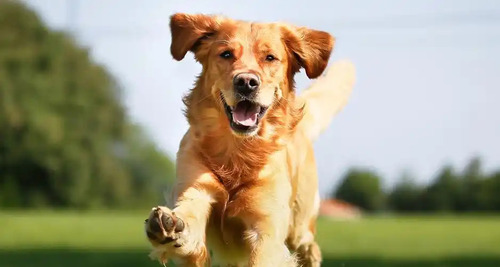If you’ve ever taken your dog for a walk only to have them enthusiastically roll in something foul—like a dead animal or other unpleasant scents—you’re not alone. It's one of the more baffling, and let’s face it, disgusting, quirks of dog behavior. But why do our lovable companions seem to delight in covering themselves in the stink of decay? Let’s dig into the science and instinct behind this smelly mystery.

At first glance, this behavior seems bizarre, but it actually stems from ancient instincts passed down from dogs’ wild ancestors, like wolves and coyotes. Rolling in the scent of a dead animal or other pungent odors may have served a practical purpose: masking their own scent to avoid detection by predators or prey.
In the wild, predators rely on stealth to catch their prey. By rolling in a strong, often decomposing smell, a wild dog could potentially disguise its natural odor, making it harder for prey to detect them. For domesticated dogs, these instincts remain strong, even though their modern lives rarely require the need for stealth hunting.
Another theory suggests that dogs may roll in dead animals as a way of sharing information with their pack. Wolves and other wild canines have been observed rolling in strong odors and then returning to their pack with the new scent. It’s believed this serves as a form of non-verbal communication, providing other members of the pack with information about the environment.
Your dog may not be bringing home messages about potential prey, but the behavior is likely a relic of this ancient method of communication. To your dog, the scent may be like an irresistible news flash that they can’t wait to share.
Dogs experience the world primarily through their sense of smell, which is estimated to be up to 100,000 times more sensitive than ours. When they encounter a particularly pungent odor, it’s not just unpleasant to us—it’s an explosion of information to them. Rolling in it might be their way of fully immersing themselves in that sensory experience, much like how humans might jump into a swimming pool or roll down a grassy hill for the fun of it.
While we may cringe at the thought of our dogs diving into a patch of decayed matter, they seem to revel in it. To them, smells that are foul to humans may actually be intriguing, or even enjoyable. It’s hard to say exactly why they find these smells so appealing, but it could be related to their scavenger instincts. Historically, canines often survived by eating whatever they could find, and their sense of smell may have been attuned to identifying food sources, even if they were decomposing.
While understanding the reasons behind the behavior might make it more tolerable, you probably still don’t want your dog coming home smelling like roadkill. Here are a few tips to keep your pup out of the stink zone:
Keep Them on a Leash: If you know your dog has a tendency to roll in gross things, keeping them on a leash in areas where dead animals or strong smells are present can help prevent the behavior.
Training Commands: Teaching your dog commands like “leave it” or “come” can be useful when they start to show interest in something unpleasant.
Supervise Play: If you’re letting your dog off-leash, keep a close eye on where they’re playing. Swiftly redirect their attention if they seem too interested in a suspiciously smelly spot.
Dogs rolling in dead animals might never make sense from a human perspective, but it’s part of their complex evolutionary history. Whether they’re masking their scent, communicating with others, or simply indulging in sensory exploration, it’s clear that our pups see the world in a way we may never fully understand. While it can be a bit of a smelly problem, it’s also a reminder of the wild instincts still alive in our domesticated companions.
animal tags: Dogs
We created this article in conjunction with AI technology, then made sure it was fact-checked and edited by a Animals Top editor.